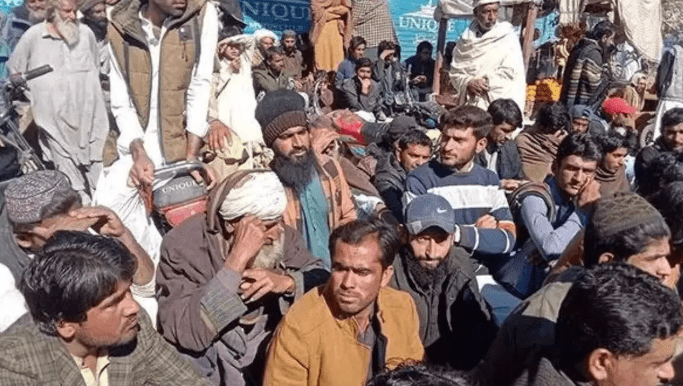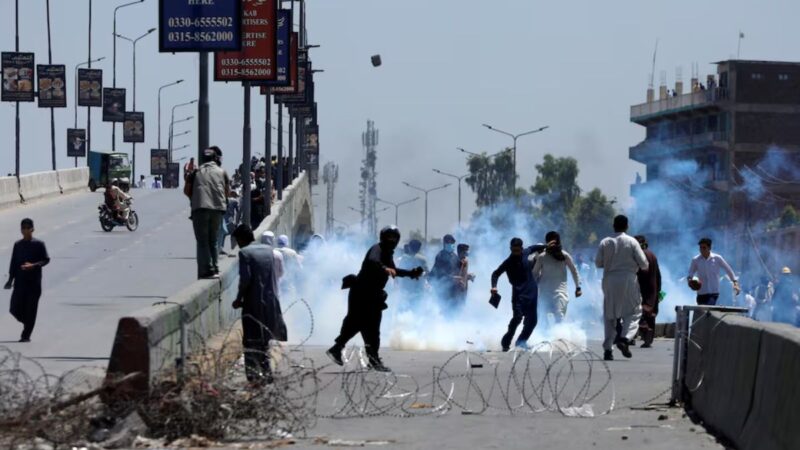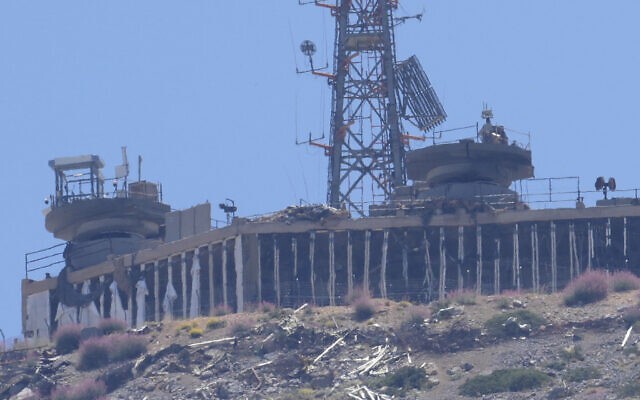Border Blockade: The Local Economy in Balochistan Is Shaken by the Standoff Over Travel Documents

In the heart of Balochistan, a remarkable standoff unfolds at the Chaman border crossing with Afghanistan, challenging Islamabad’s recent policy shift. The crux of the dispute lies in a decision that mandates only individuals bearing valid travel documents to traverse the international boundary. This pivotal change has incited widespread protests, notably in Chaman, where demonstrators have taken a firm stance against the policy, citing its detrimental impact on local trade and livelihoods.
A Community in Disarray
The ripple effects of the government’s decision are palpable in the bustling streets of Chaman. At least 20,000 families, whose sustenance hinges on the erstwhile document-free trade with Afghanistan, find themselves in a precarious position. The local economy, a vibrant tapestry of cross-border commerce, teeters on the brink as traders grapple with the sudden imposition of stringent documentation requirements. The heart of the protest beats outside a passport office in Chaman city, where demonstrators have staged sit-ins, voicing their dissent in a palpable outcry against policies they perceive as a threat to their way of life.
Government Stance and Public Dissent
The unfolding drama saw a significant escalation with the arrest of at least 20 individuals, including the outspoken spokesperson for the sit-in, Sadiq Achakzai. In a defiant response to the protests, which commenced on October 20th last year, the government, through Caretaker Information Minister Jan Achakzai, reiterates the sovereign right to dictate travel documentation requirements. Despite the evident public dissent, there is a clear indication that the policy will persist, anchored in the government’s intent to align with international standards by dismantling the erstwhile system that allowed crossing with the Afghan national identity card, or Tazkira.
Efforts to Quell Unrest and the Road Ahead
In an attempt to bridge the divide, the government engaged local elders, aiming to diffuse tensions. However, the situation reached a new peak as protesters took a drastic step by blocking Kozak Top (Khojak Pass), a strategic move that prompted a significant deployment of the FC Force to the area. This blockade has not only disrupted daily life but also cast a long shadow over bilateral trade activities between Pakistan and Afghanistan. The standoff at Chaman is more than a protest; it is a vivid narrative of resilience, a community’s struggle to safeguard its economic lifeline in the face of sweeping policy changes.
As the dust settles on the streets of Chaman, the echoes of protest against Islamabad’s travel documentation policy reverberate across Balochistan and beyond. The demonstrators, steadfast in their resolve, underscore a poignant message: security concerns or budget issues will not be allowed to erase livelihoods. The story of Chaman is a testament to the complex interplay between government policy and the human element, a narrative that continues to unfold with each passing day.






